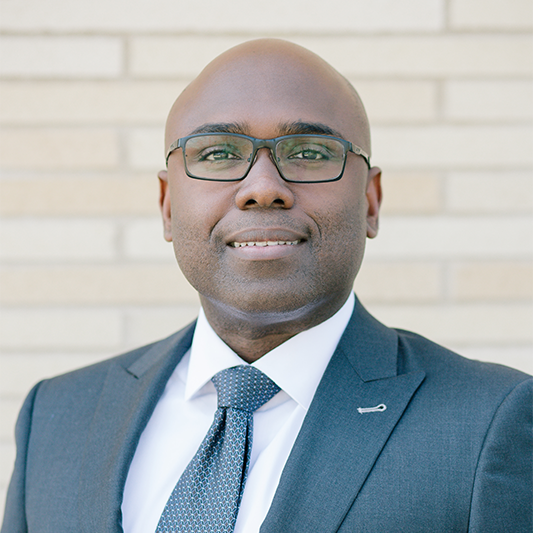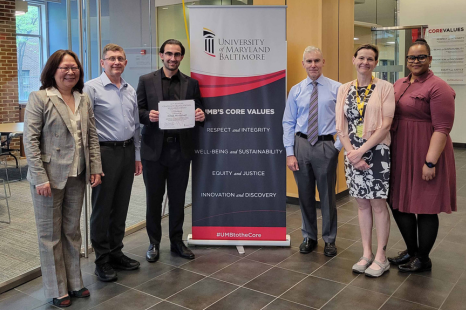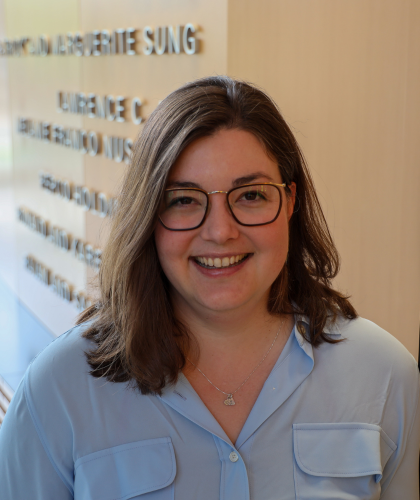News Story
Marc Dandin Receives NSF CAREER Award

University of Maryland’s (UMD) Fischell Department of Bioengineering (BIOE) and Department of Electrical and Computer Engineering (ECE) alumnus Marc Dandin, 04, M.S. ’07, Ph.D. ’12, has received the National Science Foundation (NSF) Faculty Early Career Development (CAREER) Award. Currently as an Assistant Professor of Electrical and Computer Engineering at Carnegie Mellon University, Dandin earned the prestigious five-year grant in recognition of his work in microsystems engineering, integrated circuit design, and biomedicine. Dandin also serves on the BIOE Advisory Board where he continues to demonstrate his commitment to UMD by contributing his expertise and guidance to shape the future of bioengineering education and innovation.
“I’m truly honored to receive this prestigious award and excited by the opportunity to contribute to the advancement of optoelectronics science and engineering. The NSF’s support will allow me to focus on key challenges in the field, some of which I first began exploring during my time at UMD.” Marc says. “I’m deeply grateful to my advisors, Pamela Abshire and Elisabeth Smela, whose unwavering guidance and mentorship have played a pivotal role in helping me reach this point. In many ways, this CAREER Award is a reflection of their continued support and encouragement over the years.”
“I’m truly honored to receive this prestigious award and excited by the opportunity to contribute to the advancement of optoelectronics science and engineering. The NSF’s support will allow me to focus on key challenges in the field, some of which I first began exploring during my time at UMD.”
-Marc Dandin
Dandin leads the Integrated Circuits and Bioengineering Laboratory, where he develops integrated circuits designed to interface with biological systems. His research focuses on creating chips that interact with cell cultures to better understand how these micro biosystems function. This includes studying their behavior in response to drugs and in disease states, with potential applications in the pharmaceutical industry. His lab designs systems that can monitor cells without using labels or stains, significantly reducing costs and increasing efficiency in drug discovery.
Utilizing his NSF CAREER Award, Dandin will study a novel approach for imaging near the quantum limit. His work will explore solid-state single-photon detectors, a type of light sensor capable of detecting and processing light at single-photon resolution. These sensors are used in quantum computing and biomedical analysis, but challenges remain in improving noise levels, temperature sensitivity, resolution, and photodetection efficiency. By integrating single-photon sensors with microelectronic chips, his research aims to optimize these technologies and expand their applications.
Beyond research, Dandin’s CAREER Award project includes a strong educational component. He is addressing a major challenge in his field by focusing on the need for interdisciplinary expertise in both biology and engineering. His initiative will introduce optoelectronic science and engineering to middle and high school students, as well as provide translational research opportunities and an entrepreneurship practicum for undergraduate and graduate students.
The CAREER Program is the NSF’s most prestigious award in support of early-career faculty who have the potential to serve as academic role models and to lead advances in research and education. By combining innovative research with education, Dandin’s work exemplifies the mission of the CAREER Program in preparing future scientists and engineers to tackle complex technological challenges.
Published February 13, 2025






